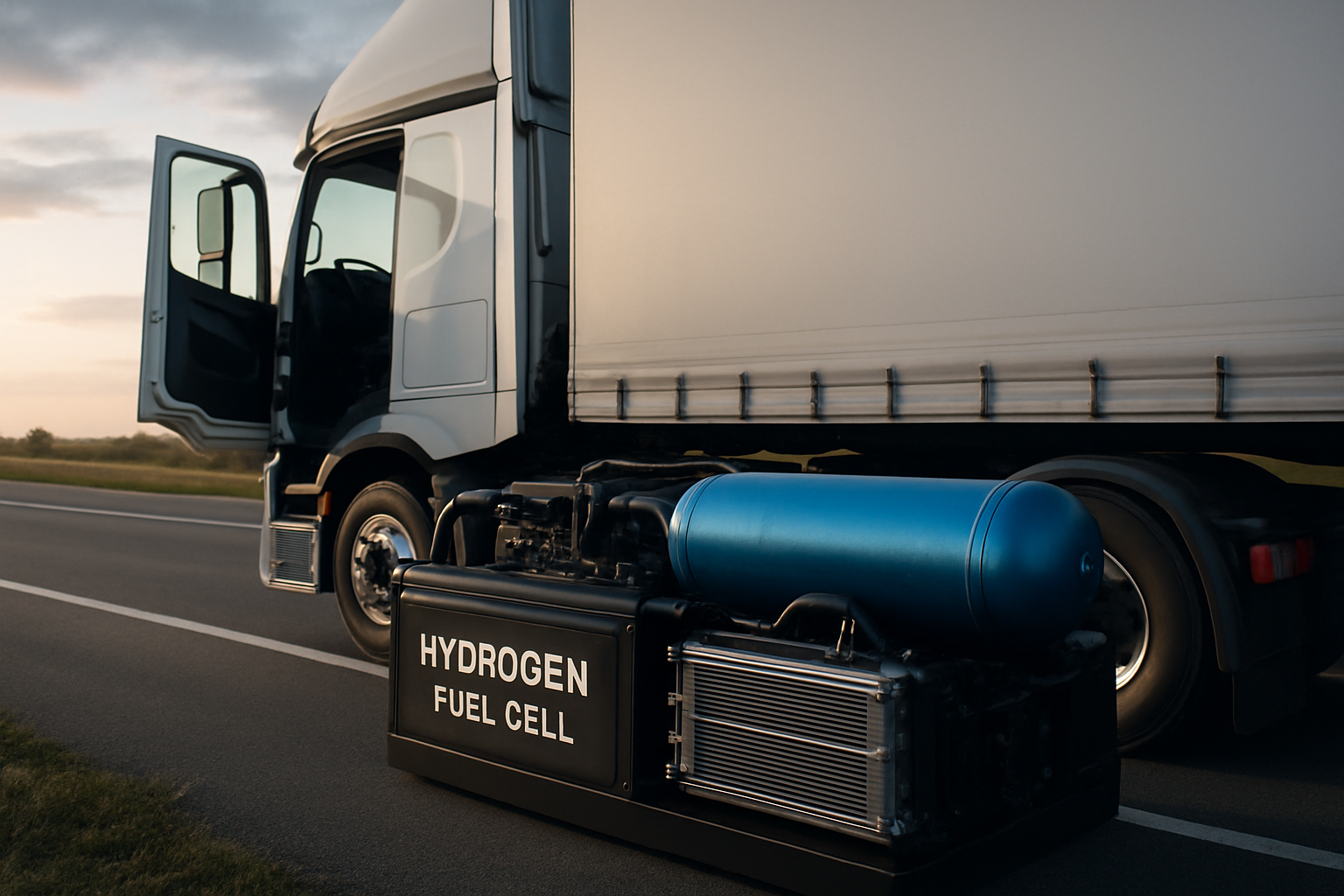Hydrogen Fuel Cells: The Quiet Revolution in Trucking
In the world of heavy-duty transportation, a silent transformation is underway. Hydrogen fuel cell technology is emerging as a promising solution for long-haul trucking, offering a potent combination of zero-emissions operation and extended range capabilities. This groundbreaking approach to powering commercial vehicles is reshaping the trucking industry, challenging conventional diesel engines, and paving the way for a cleaner, more sustainable future in freight transport. Let's delve into the world of hydrogen fuel cells and explore their potential to revolutionize the trucking sector.

A Brief History of Hydrogen in Transportation
The concept of using hydrogen as a fuel source is not new. In fact, it dates back to the early 19th century when Swiss inventor François Isaac de Rivaz created the first internal combustion engine powered by hydrogen. However, it wasn’t until the mid-20th century that serious development of hydrogen fuel cells began, primarily driven by NASA’s space program. The technology found its way into various experimental vehicles over the decades, but it’s only in recent years that advances in fuel cell efficiency, hydrogen production, and storage have made it a viable option for commercial trucking.
Advantages Over Traditional Diesel Engines
Hydrogen fuel cell trucks offer several compelling advantages over their diesel counterparts. First and foremost is their environmental impact – or lack thereof. With only water vapor emitted during operation, these vehicles produce zero tailpipe emissions, significantly reducing air pollution and greenhouse gas contributions from the trucking sector. Additionally, hydrogen fuel cell trucks can refuel in a matter of minutes, comparable to diesel refueling times and much faster than battery electric vehicles. This quick turnaround is crucial for maintaining efficient logistics operations.
Range and Performance in Long-Haul Trucking
One of the most significant challenges in electrifying heavy-duty trucks has been achieving the range necessary for long-haul operations. Hydrogen fuel cells offer a solution to this problem. With current technology, hydrogen fuel cell trucks can achieve ranges of up to 600 miles on a single fill, rivaling diesel trucks and far exceeding the capabilities of most battery electric options. This extended range, combined with rapid refueling, makes hydrogen fuel cells particularly attractive for long-distance freight transport.
Infrastructure Challenges and Development
While the technology shows great promise, the widespread adoption of hydrogen fuel cell trucks faces a significant hurdle: infrastructure. The current network of hydrogen fueling stations is limited, particularly for heavy-duty vehicles. However, this is rapidly changing. Several countries and private companies are investing heavily in developing hydrogen infrastructure along major trucking routes. For instance, in Europe, the H2Haul project aims to deploy hydrogen refueling stations and fuel cell trucks across key freight corridors. Similar initiatives are underway in North America and Asia, laying the groundwork for a hydrogen-powered trucking future.
Economic Considerations and Total Cost of Ownership
The economic viability of hydrogen fuel cell trucks is a critical factor in their adoption. While the initial cost of these vehicles is currently higher than traditional diesel trucks, the total cost of ownership (TCO) is becoming increasingly competitive. Factors contributing to this include lower fuel costs (as hydrogen production becomes more efficient), reduced maintenance requirements due to fewer moving parts, and potential government incentives for zero-emission vehicles. As production scales up and technology improves, the TCO for hydrogen fuel cell trucks is expected to decrease further, potentially undercutting diesel options in the near future.
Collaboration and Innovation in the Industry
The development of hydrogen fuel cell technology for trucking has spurred unprecedented collaboration within the automotive and energy sectors. Traditional truck manufacturers are partnering with technology companies and energy providers to accelerate innovation. These partnerships are driving advancements in fuel cell efficiency, hydrogen storage, and refueling technologies. For example, joint ventures between truck makers and hydrogen producers are not only developing vehicles but also working on integrated solutions for hydrogen production and distribution, creating a more cohesive ecosystem for hydrogen-powered transportation.
Regulatory Environment and Policy Support
Government policies and regulations play a crucial role in the adoption of hydrogen fuel cell technology in trucking. Many countries are implementing stricter emissions standards for commercial vehicles, creating a favorable environment for zero-emission alternatives. Additionally, financial incentives, grants, and tax breaks for both vehicle purchases and infrastructure development are accelerating the transition. The European Union, for instance, has set ambitious targets for deploying hydrogen refueling stations and has earmarked significant funds for hydrogen projects as part of its green recovery plan.
The Road Ahead: Challenges and Opportunities
As with any emerging technology, hydrogen fuel cells in trucking face several challenges. These include further reducing costs, improving fuel cell durability, and expanding the hydrogen infrastructure network. However, the potential benefits – from environmental improvements to operational efficiencies – are driving continued investment and innovation. The coming years will likely see increased pilot programs, more diverse hydrogen truck offerings, and growing acceptance among fleet operators.
A Hydrogen-Powered Future for Trucking?
Hydrogen fuel cell technology represents a compelling vision for the future of long-haul trucking. With its promise of zero emissions, long range, and quick refueling, it addresses many of the challenges faced by the industry in its quest for sustainability. While obstacles remain, the rapid pace of technological advancement and growing support from both industry and governments suggest that hydrogen fuel cells could play a significant role in the trucking sector’s future. As we move towards a cleaner, more sustainable transportation landscape, hydrogen fuel cell trucks may well become a common sight on highways around the world, quietly revolutionizing the way we move goods across vast distances.





